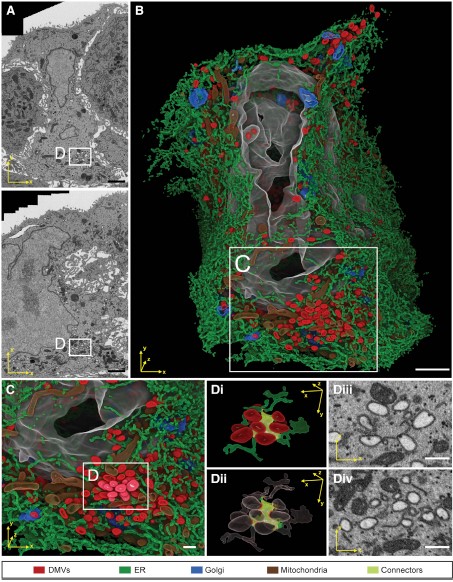Integrative Imaging Reveals SARS-CoV-2-Induced Reshaping of Subcellular Morphologies
Cortese et al. use integrative imaging techniques to generate a publicly available repository of morphological alterations induced by SARS-CoV-2 in lung cells. Accumulation of ER-derived double-membrane vesicles, the viral replication organelle, occurs concomitantly with cytoskeleton remodeling and Golgi fragmentation. Pharmacological alteration of cytoskeleton dynamics restricts viral replication and spread.

Pathogenesis induced by SARS-CoV-2 is thought to result from both an inflammation-dominated cytokine response and virus-induced cell perturbation causing cell death. Here, we employ an integrative imaging analysis to determine morphological organelle alterations induced in SARS-CoV-2-infected human lung epithelial cells. We report 3D electron microscopy reconstructions of whole cells and subcellular compartments, revealing extensive fragmentation of the Golgi apparatus, alteration of the mitochondrial network and recruitment of peroxisomes to viral replication organelles formed by clusters of double-membrane vesicles (DMVs). These are tethered to the endoplasmic reticulum, providing insights into DMV biogenesis and spatial coordination of SARS-CoV-2 replication. Live cell imaging combined with an infection sensor reveals profound remodeling of cytoskeleton elements. Pharmacological inhibition of their dynamics suppresses SARS-CoV-2 replication. We thus report insights into virus-induced cytopathic effects and provide alongside a comprehensive publicly available repository of 3D datasets of SARS-CoV-2-infected cells for download and smooth online visualization.